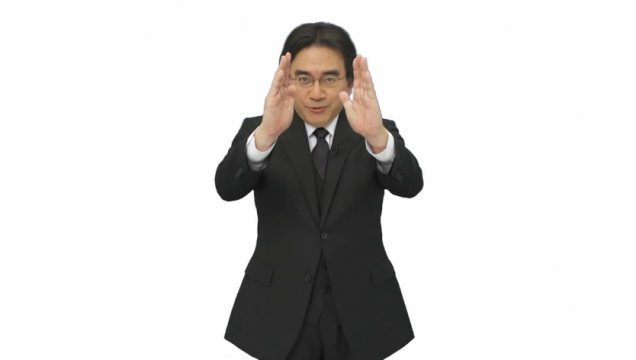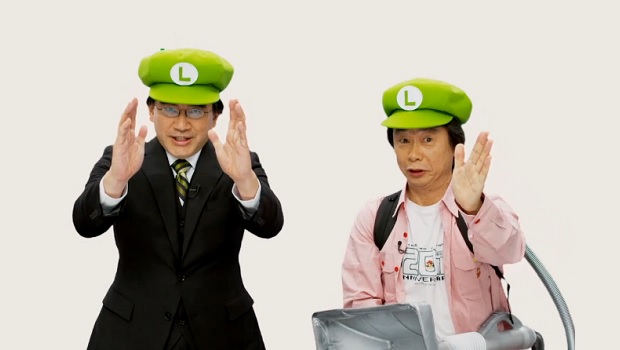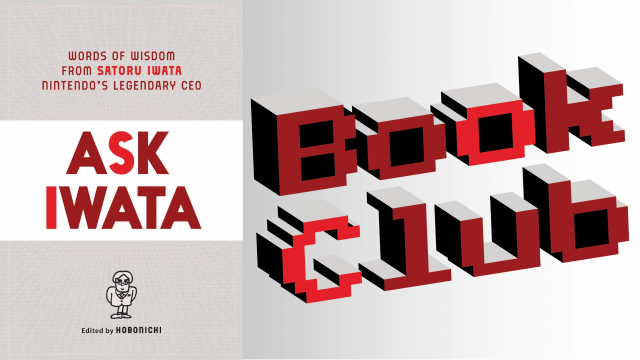Book Club is where we take a look at books about the video game industry and its creators, offering our impressions and insights regarding the writing within. Part review, part reflection, Book Club is a great way to find something new to read about all of our favorite pastime.
Order a copy of Ask Iwata here.
- Edited by Hobonichi
- Translated by Sam Bett
- Publisher: VIZ Media LLC (April 13, 2021)
- Length: 176 pages
- ISBN13: 9781974721542
I’ve been picking at Ask Iwata for the past couple of weeks during my daily stroll downtown and finally wrapped the book up today. For those who aren’t quite sure who he was, Satoru Iwata was a massively influential game designer for HAL Laboratory and eventually Nintendo. He served as president of both companies, but it was during his time with Nintendo that Iwata really cemented himself as the legendary figure he became. Under his direction Nintendo produced both Wii and DS, two of the company’s most experimental and successful pieces of hardware. After Iwata passed away six years ago, the industry was left without one of its most pioneering visionaries. It only makes sense, then, that a book like this would exist—something that simultaneously celebrates his contributions to the world of video games as well as offers a look into what makes him tick.
Ask Iwata is fascinating in that it is neither a biography nor a true memoir; instead, it’s a collection of writings parsed from Iwata’s online series “Iwata Asks.” This selection of his reflections is divided up into seven chapters, interspersed with six sections of “Iwata’s Words of Wisdom,” which are notable quotes pulled from across his career. At the end, there are a couple of warm tributes to Iwata from his friends and colleagues Shigeru Miyamoto and Shigesato Itoi. The structure of Ask Iwata works really well. With the exception of Miyamoto and Itoi’s inserts, the entire book is written in the first-person by Iwata himself. These are his recollections, his own takes on his career, and as a result the entire book feels quite personal.

Ask Iwata opens up with his account of how he became enamored with coding and computers in school, which informed the path he would take from college forward. It’s at this early juncture in the book that the groundwork is laid for the sort of man that Iwata would go on to become. Curiosity and inventiveness were at the core of his being, as well as an innate desire to entertain and please other people. Creating games on his pocket calculator was enjoyable just as much because of the friend he could share his creations with as it was the intellectual challenge of designing them. Iwata’s transition from university to HAL would see the designer continuing to develop his craft as a software maker, one whose technical prowess was only held back by an inability to “read” his audience. Or perhaps put better, he could make technically impressive games, but being able to draw in an audience to them was something he worked hard to learn how to do. With the guidance of Miyamoto and Itoi, it was a weakness he quickly overcame.
One of the highlights of Ask Iwata comes from learning these more personal details about the friendship between Iwata, Miyamoto, and Itoi. It’s not like these designers are complete mysteries outside of the games they’ve produced, but hearing about everything from lunchtime traditions to the delightful nickname of “Kirby” that Iwata earned himself makes these legends of the industry more relatable than ever. What really resonated with me throughout the book, however, was the genuine affection that all of these men had for one another. Iwata, based on what I’ve read here and elsewhere, seems to have been a truly decent person. His ability to inspire the workers at both HAL and Nintendo is a testament to this. The ways that Itoi, Iwata, and Miyamoto were all drawn together, though, was inspiring in a different way. It was a reminder that even if people don’t see perfectly eye to eye that there is always room for compromise, growth, and respect.

Much of Ask Iwata deals with Iwata’s vision for Nintendo as a corporation. While his philosophies might have been used to run a company, the core tenets of his beliefs are applicable in everyday life, as well. I found myself wishing to have even a portion of Iwata’s patience. He was not only constantly learning, but also applying what he learned to the management of his workers and the relationships he formed with them. The book mentions multiple times how Iwata would meet with his staff on a regular basis, taking their various concerns and ideas into consideration and doing his best to accommodate them. Being so fair and open-minded is something that I think anyone can stand to emulate, especially in the extremely polarized times we live in right now.
The book was translated by Sam Bett, and what I know about translating is that there are not always perfect parallels for certain words and phrases between languages. When it comes to Japanese and English this is especially true. Ask Iwata reads just fine, but there are some peculiarities to certain phrases and concepts that I chalk up to the language difference. There are also cultural concepts that might contribute to these irregularities, as well. These are very tiny quirks that don’t take away from the spirit of Ask Iwata, but they’re likely to be noticed by others when reading the book. Beyond that, in some ways Ask Iwata feels like it’s needlessly conservative with its page count. Iwata’s career spanned decades, and during the formative years of HAL and Nintendo, no less. I would have loved to have been able to read more about the projects he worked on.
Ultimately, Ask Iwata left me with a clearer picture than ever of who Iwata was. While the various Nintendo Directs he appeared in offered some small insight into Iwata’s personality, this was a far better and more thorough education. Iwata touched many lives throughout his life. Most corporate figures are rarely as beloved as he was, and after reading Ask Iwata I can honestly say my positive opinion of him grew even more. If nothing else, I hope this book leads to others of its ilk. Give Ask Iwata a read if you get a chance.




 ShareThis
ShareThis






